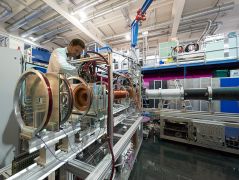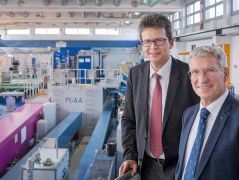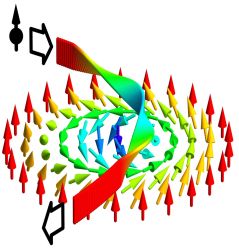MLZ is a cooperation between:
 > Technische Universität München
> Technische Universität München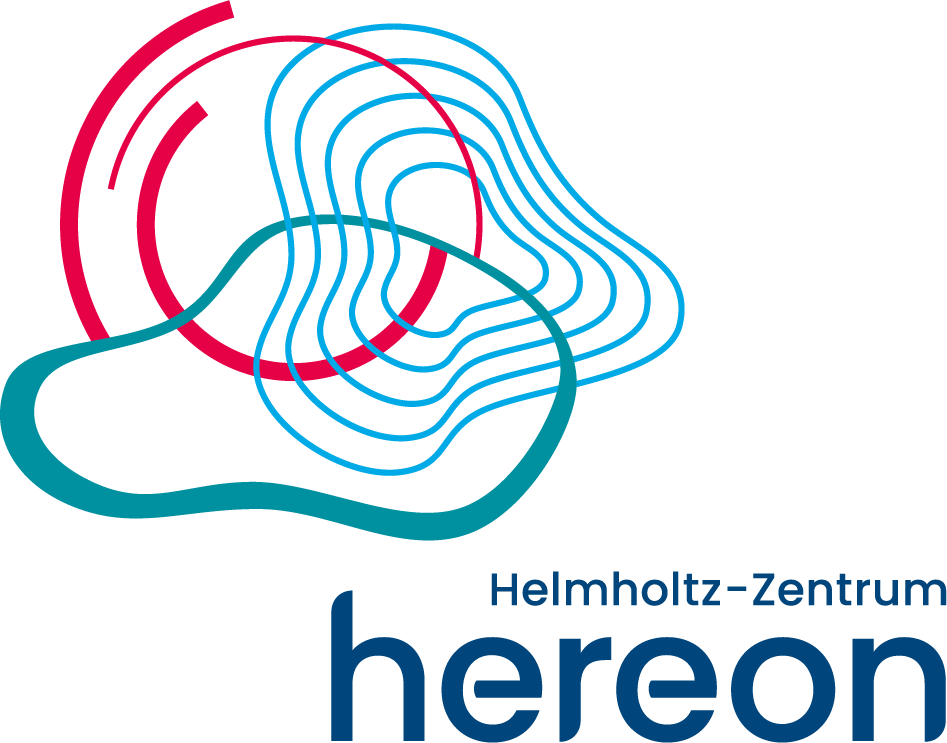 > Helmholtz-Zentrum Hereon
> Helmholtz-Zentrum Hereon
 > Forschungszentrum Jülich
> Forschungszentrum Jülich
MLZ is a member of:
 > LENS
> LENS > ERF-AISBL
> ERF-AISBL
MLZ on social media:

MLZ (eng)
Lichtenbergstr.1
85748 Garching
18.12.2023
Change at the top of the TUM Research Neutron Source
Prof. Pfleiderer new scientific director of the FRM II and MLZ
The Heinz Maier-Leibnitz Research Neutron Source (FRM II) is getting a new scientific director. Physicist Prof. Christian Pfleiderer from the School of Natural Sciences at the Technical University of Munich (TUM) will take over from Prof. Peter Müller-Buschbaum on January 1, 2024. Pfleiderer has been at TUM since 2004 and has held the Chair of Experimental Physics for the Topology of Correlated Systems since 2014.
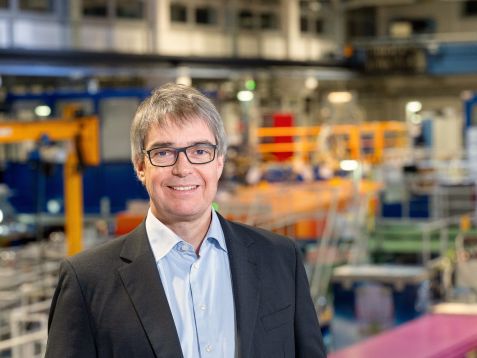
Prof. Christian Pfleiderer has held a chair at the TUM Physics Department since 2014. © Astrid Eckert, TUM
TUM President Prof. Thomas F. Hofmann emphasized: “I am convinced that Prof. Pfleiderer will master the upcoming tasks at FRM II with scientific and technical vision, international horizons, and the necessary diplomatic skills.” Hofmann also thanked Müller-Buschbaum, the Scientific Director at the FRM II since 2018: “He has continuously advanced the FRM II in challenging times and with enormous commitment – parallel to his outstanding scientific successes.”
Pfleiderer said of his goals: “I would like to make the great expertise available at the Research Neutron Source accessible to the entire scientific community. The Research Neutron Source is an enormously important service provider for scientists in Germany and abroad, and we must continue to offer this potential.”
Significant advances in instrumentation in recent years have made it possible to use neutrons more efficiently and accelerate measurement times so that important scientific questions can be solved for the first time: New, AI-supported measurement and analysis methods are also to be established for this purpose. Pfleiderer also intends to continue the already planned major upgrade program for the scientific instruments in a team with the employees during his five-year term of office.
At the same time as taking up the post of Scientific Director at the FRM II, Christian Pfleiderer will also take over the rotating position of Spokesperson of the Scientific Directorate at the Heinz Maier-Leibnitz Zentrum, the cooperation between TUM, Forschungszentrum Jülich, and Helmholtz-Zentrum Hereon.
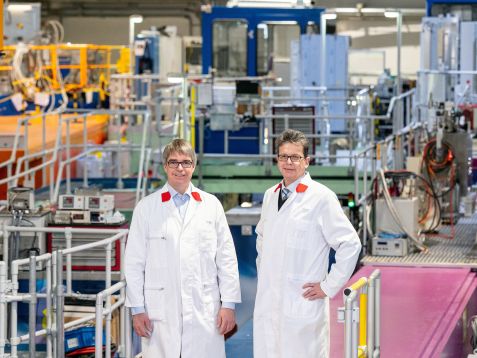
Prof. Pfleiderer (left) together with his predecessor at the FRM II, Prof. Peter Müller-Buschbaum (right). © Astrid Eckert, TUM
About the person
Pfleiderer studied physics in Tübingen and Denver and completed his doctorate at the University of Cambridge from 1990 to 1994. As a post-doctoral researcher, he worked at the research institute CEA in Grenoble and headed a Helmholtz university junior research group in Karlsruhe. He accepted the call to TUM primarily because of the “fabulous measurement possibilities at the research neutron source,” as he says.
In 2009, a team led by Pfleiderer used neutrons at the FRM II and theoretical calculations to detect magnetic vortices, known as skyrmions, in magnetic solids for the first time. They are suitable for use as fast data storage devices. Christian Pfleiderer has received numerous awards for his discovery of skyrmions, including the Europhysics Prize from the European Physical Society in 2016.
Pfleiderer is the spokesperson for the Skyrmionics Priority Program of the German Research Foundation and on the board of the Augsburg-Munich Transregio on Constrained Quantum Matter. Since 2018, he has been in charge of establishing the TUM Center for Quantum Engineering.
- Forschungs-Neutronenquelle Heinz Maier-Leibnitz
- Prof. Dr. Christian Pfleiderer
- News report on Prof. Pfleiderer’s discovery of skyrmions
FRM II press contact:
Anke Görg
Tel. +49 89 289 14615
anke.goerg@frm2.tum.de
Andrea Voit
Tel. +49 89 289 12141
andrea.voit@frm2.tum.de
Related News
-
04.03.2022
Waves on circular paths
MLZ is a cooperation between:
 > Technische Universität München
> Technische Universität München > Helmholtz-Zentrum Hereon
> Helmholtz-Zentrum Hereon
 > Forschungszentrum Jülich
> Forschungszentrum Jülich
MLZ is a member of:
 > LENS
> LENS > ERF-AISBL
> ERF-AISBL
MLZ on social media:




